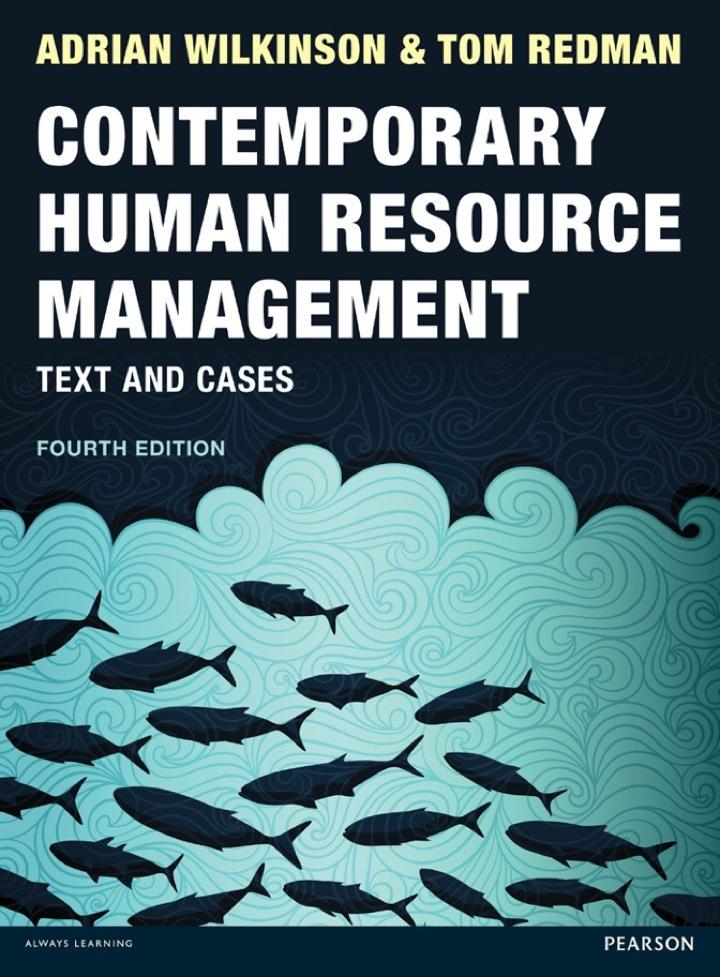This case study explores two networks, an outsourced group of housing benefit caseworkers and production workers in
Question:
This case study explores two ‘networks’, an outsourced group of housing benefit caseworkers and production workers in a specialist chemicals company, and considers the effect that each network had on employee skills.
Total Customer Services (TCS) specialize in business operations outsourcing. With a turnover of over
£200 million per year and more than 3,000 employees, TCS has one of the largest players in this emerging market and had a strategy of rapid expansion. It took over the management of the housing benefits office of a London borough as a loss-leader in order to break into an expanding area of outsourcing business. This housing benefits office had previously been underperforming and was identified as one of the worst boroughs in London. Here, claim processing was outsourced to improve the quality of service provided.
Scotchem is a pigment manufacturing plant. It is one of several UK-based chemical production facilities owned by Multichem, a large European multinational that specializes in developing and producing industrial chemicals. Pigments have been produced on the site for over 75 years and Scotchem is Multichem’s centre of excellence in pigment manufacture. The company employs over 650 people on its unionized site and produces around 24,000 tones of pigment. A regular feature of this production process was that Scotchem collaborates with customers and suppliers in order to develop both processes and products for specific orders.
Both of these networks were organized, and gained their flexibility, in slightly different ways. In TCS claims processing was contracted out for seven years and initially contact between the council and TCS (with the exception of contract negotiation at senior level) took the form of council staff monitoring claims processed by TCS caseworkers. However, the original contract also set performance levels for TCS and these were not met. As a result, the council set a new series of targets and weekly meetings were held with senior TCS staff to discuss performance.
Scotchem’s network is far more flexible, at least in terms of its relations with customers and suppliers.
Since it produces chemicals in bulk and can both place and fill orders on a very large scale, many of its suppliers and customers are long-term, with 20- or 30-year relationships not uncommon. Formal contracts tended to be short-term, with quarterly negotiations used to set prices and agree approximate levels of consumption in order to manage work in progress. However, these agreements are part of very long-term relationships. As a result, a series of alliances and friendships have built up between various staff members, with informal contacts and tacit knowledge supplementing official agreements about cooperation.
Contracts, control and the decline of discretion
In theory, outsourcing only changes the responsibility for completing a task, not the task itself. In theory too, such a change may improve efficiency and effectiveness.
The organization that outsources may gain numerical flexibility, hiring staff only when needed, or secure access to expertise that it lacks internally.
Yet these theories focus on organizational experience or expectations and assume that the way work is managed does not affect the way it is carried out.
In practice, in TCS, outsourcing required a change in management structure which fundamentally altered the work processes. Such adjustments might have been predicted. There are, broadly, two distinct ways of controlling staff: ‘status’, in which employees are trusted to perform often ill-specified or ‘extra-functional’ activities (and through which they may gain certain rights), and ‘contract’, where tasks tend to be clearly specified and tightly controlled, completed at the order of employers (Streeck, 1987). Most employment relationships tend to be a fluid mixture of both, influenced by organizational structures, individuals and contexts. According to the prescriptive literature, liberation from bureaucratic control should increase an individual’s autonomy; in practice, in TCS, the reverse was the case. Here the process of contracting meant that tasks were more strictly defined and monitored and employees were able to exercise less discretion.
Housing benefit staff had previously been responsible for seeing an entire claim through from start to finish, ensuring that the documentation was complete and correct and often exercising their professional judgement to condone minor omissions. Since forms were complicated and demanded repeated pieces of evidence, these omissions were reasonably common.
Under TCS, once the work was contracted out, processing was reorganized so that caseworkers ‘specialized’ in one part of the claims process or worked in the newly set-up call center for extended periods of time (instead of part of a shift, as had been the case under the local authority). Housing benefit is a complex area and regulations are subject to change, so this specialization not only made processing claims less pleasurable by taking away caseworkers’ feelings of ‘ownership’ and making their work less interesting, it also meant that skills declined. Staff were no longer aware of changes that occurred outside their own narrow remit. Their power to make decisions was also lost. Caseworkers were required only to ensure that the paperwork was complete before passing the form back to the local authority, rather than approving it as it stood.........
Question
1 What were the main differences between the way work was organized at TCS and at Scotchem?
2 What implications did this have for skill?
3 What impacts would be improving or increasing training have had in these companies?
4 How important is discretion
(a) In these two case studies, and
(b) As part of skill?
5 Given the evidence here, what are the implications of a general increase in outsourcing work?
Step by Step Answer:

Contemporary Human Resource Management Text And Cases
ISBN: 9780273757825
4th Edition
Authors: Tom Redman, Adrian Wilkinson





